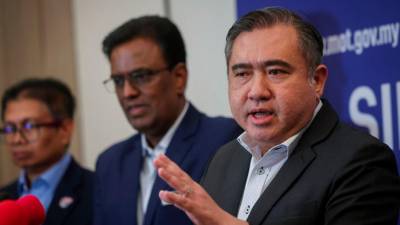KUALA LUMPUR: Government initiatives to develop four airports into cargo aviation hubs dominated discussions at the National Aviation Consultative Council (NACC) 2025 meeting.
The Transport Ministry confirmed Kuala Lumpur International Airport, Penang International Airport, Kota Kinabalu International Airport and Senai International Airport will undergo transformation into specialised cargo facilities.
This strategic move follows a 4.4% year-on-year growth in cargo volume handled by Malaysian airports during the second quarter of 2025.
Malaysian airports processed 272,939 tonnes of cargo between April and June 2025 compared to 261,385 tonnes during the same period in 2024.
International cargo constituted 202,911 tonnes or 74.3% of the total volume while domestic cargo accounted for 60,770 tonnes or 22.3%.
Transit cargo made up the remaining 9,258 tonnes or 3.4% of all air freight handled during the quarter.
Transport Minister Anthony Loke chaired the meeting attended by 95 top leaders from ministries, government agencies and aviation industry stakeholders.
The NACC serves as a platform for aviation industry players to discuss challenges and develop solutions for operational efficiency improvements.
Meeting participants reviewed implementation of the Green Lane to address congestion during customs inspections at KLIA Terminal 1 and 2.
They also approved improvements in airport slot management through the National Slot Coordination Malaysia framework.
A dedicated task force will monitor progress of the baggage handling system replacement project with regular reporting to the Transport Ministry.
Malaysia Airports Holdings Berhad must provide regular updates to ensure airport development projects remain on schedule.
The airport operator will develop enhanced connectivity between Terminal 1 and 2 including passenger and baggage transfer facilities in airside areas.
The government reaffirmed its commitment to supporting global sustainability agendas and addressing climate change challenges.
This aligns with the International Civil Aviation Organisation’s long-term goal of achieving net-zero carbon emissions for international aviation by 2050.
The Transport Ministry encourages engagement sessions regarding sustainable aviation fuel blending mandates proposed by the Plantation and Commodities Ministry.
These discussions aim to ensure sustainable aviation fuel implementation does not negatively impact the competitiveness of Malaysia’s aviation sector.
Achieving aviation sector decarbonisation requires a comprehensive national approach involving government and industry stakeholders.
Malaysia aims to become a regional sustainable aviation hub through collaborative efforts across the entire aviation ecosystem. – Bernama
